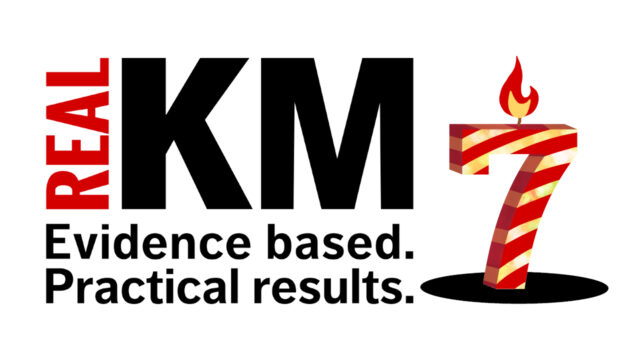
ABCs of KMEvidence-based knowledge management
Some misconceptions of evidence-based practice
This article is part of an ongoing series of articles on evidence-based knowledge management.
What comes to mind when evidence-based knowledge management is discussed? Do your thoughts align with any of these statements:
- Evidence means quantitative ‘scientific’ evidence
- Evidence-based practice means practitioners should not use their professional expertise or gut feel
- Evidence can prove things
- Evidence tells you the truth about things
- New exciting single ‘breakthrough’ studies provide the best evidence
- Collecting valid and relevant evidence gives you The Answer to The Problem
- Doing evidence-based practice means dong what the research evidence tells you works
- If you don’t have the evidence, you can’t do anything
- Experts (e.g., consultants and management school professors) know all about the evidence so you just need to ask them
- Evidence-based practice just means using proven techniques or best practices.
These statements are actually misconceptions of evidence-based practice compiled by Professor Rob Briner, Scientific Director of the Center for Evidence-Based Management (CEBMa). So if any of them struck a chord, check out RealKM Magazine’s list of guidance and resources to gain an accurate understanding of evidence-based practice.
Article source: Rob Briner on Twitter.
Header image source: Adapted from Evidence Based by Nick Youngson on Alpha Stock Images which is licenced by CC BY-SA 3.0.
Also published on Medium.



